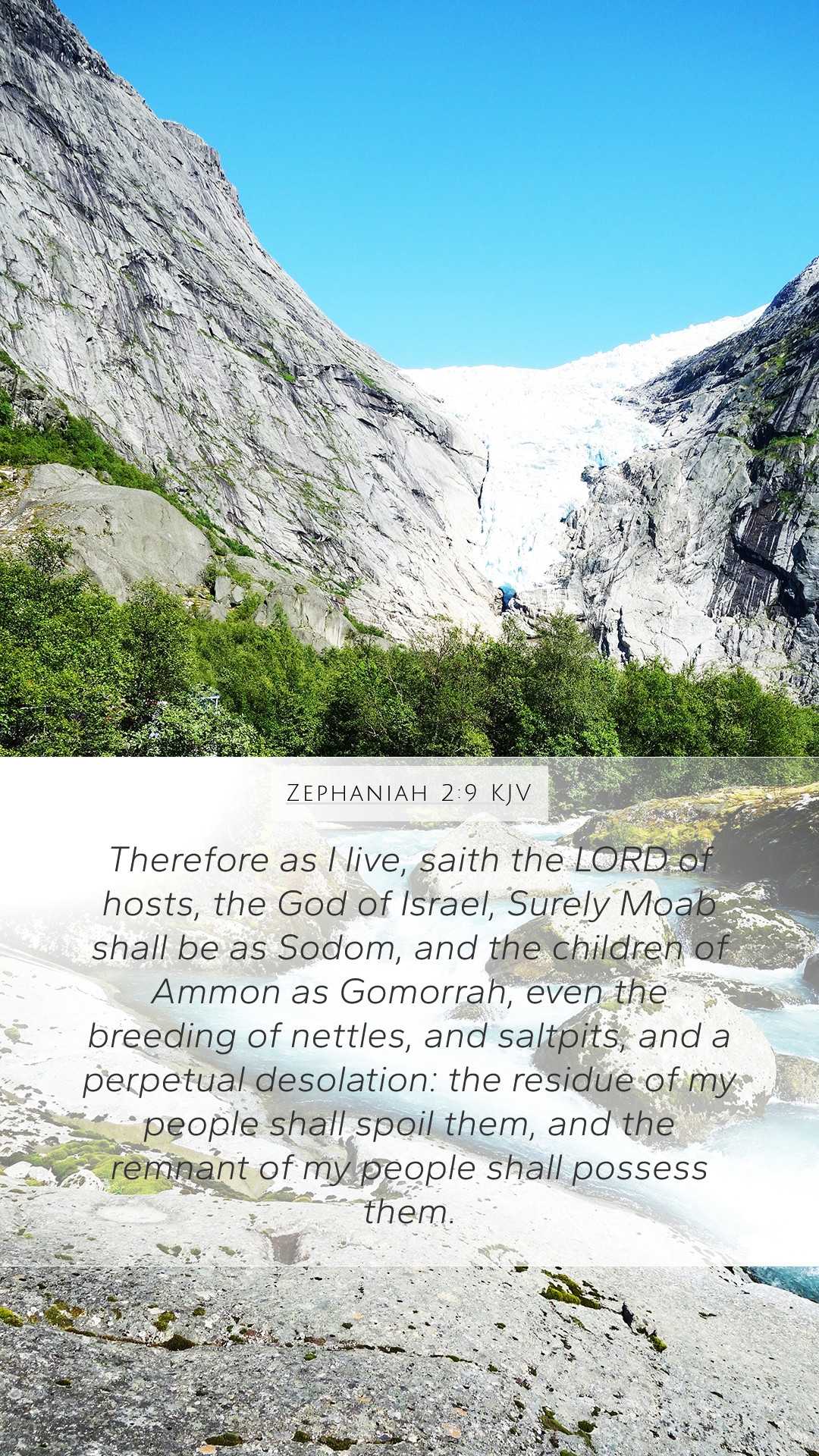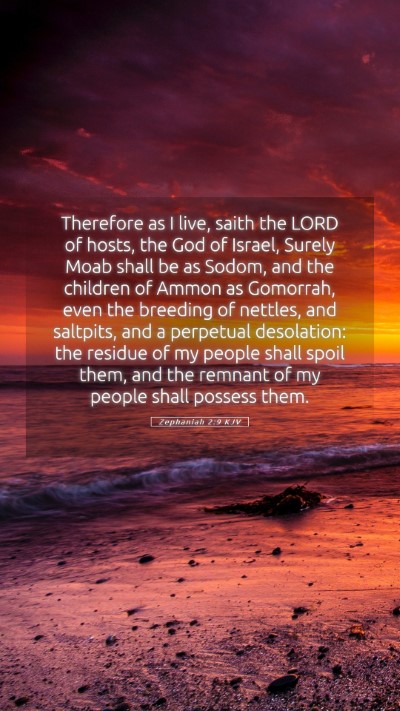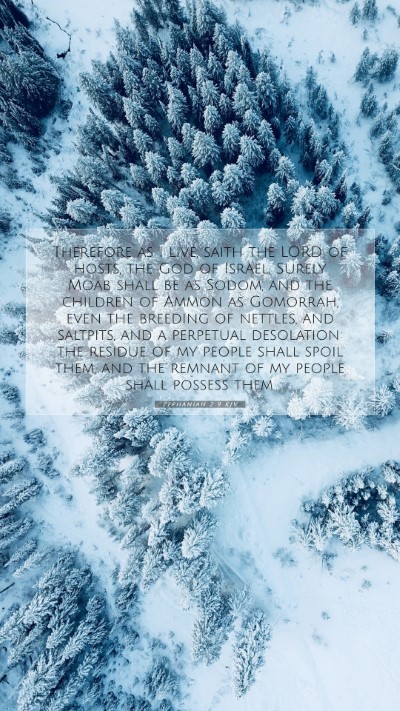Old Testament
Genesis Exodus Leviticus Numbers Deuteronomy Joshua Judges Ruth 1 Samuel 2 Samuel 1 Kings 2 Kings 1 Chronicles 2 Chronicles Ezra Nehemiah Esther Job Psalms Proverbs Ecclesiastes Song of Solomon Isaiah Jeremiah Lamentations Ezekiel Daniel Hosea Joel Amos Obadiah Jonah Micah Nahum Habakkuk Zephaniah Haggai Zechariah MalachiZephaniah 2:9 Meaning
What is the meaning of Zephaniah 2:9?
Therefore as I live, saith the LORD of hosts, the God of Israel, Surely Moab shall be as Sodom, and the children of Ammon as Gomorrah, even the breeding of nettles, and saltpits, and a perpetual desolation: the residue of my people shall spoil them, and the remnant of my people shall possess them.
Zephaniah 2:9 Bible Verse Meaning
Understanding Zephaniah 2:9
Bible Verse: Zephaniah 2:9
This verse proclaims the profound certainty of God's judgment against Moab and Ammon, while simultaneously offering hope for the remnant of His people. It encapsulates the themes of both divine retribution and redemption that are prevalent throughout the prophetic literature of the Old Testament.
Bible Verse Meanings and Interpretations
In exploring the meaning of Bible verses such as Zephaniah 2:9, we can draw connections between God's sovereignty and the historical context of His judgments. The verse states:
"Therefore, as I live," says the Lord of hosts, the God of Israel, "surely Moab shall be like Sodom, and the children of Ammon like Gomorrah—overrun with weeds and salt pits, and a perpetual desolation."
Historical Context
To properly grasp the significance of this verse, it’s essential to understand the historical conflict between Israel and these neighboring nations. Moab and Ammon are both descendants of Lot, and their enmity towards Israel is longstanding, often resulting in conflict and oppression of God’s people.
Commentary Insights
- Matthew Henry: Henry emphasizes the contrast between the desolation of Moab and the eventual restoration of Israel. He illustrates that while judgment is pronounced, it serves to highlight God's ultimate plan for His people.
- Albert Barnes: Barnes provides insight into the symbolic nature of Sodom and Gomorrah, pointing out that their destruction represents a complete and utter rejection of the wicked ways of Moab and Ammon. He emphasizes the permanence of their future desolation as a warning.
- Adam Clarke: Clarke discusses the role of disaster and ruin in God’s economy, underscoring that these prophetic declarations serve both as a refuge for the faithful and a stark reminder of God’s holiness and justice.
Applying Bible Verses to Daily Life
As we engage in Bible study groups or online Bible study, it's vital to consider how Zephaniah 2:9 applies to our spiritual journey today. Understanding the application of this verse involves recognizing the consequences of turning away from God's ways, while also cherishing the promise of restoration for those who remain steadfast in faith.
Key Themes
- Divine Judgment: The certainty of God’s judgment against sin.
- Hope and Restoration: An assured hope for the faithful remnant amidst turmoil.
- Historical Relevance: The significance of understanding the history surrounding prophetic messages to grasp their full meaning.
Scripture Analysis and Cross References
For an enriched understanding, consider the following cross-references that relate to Zephaniah 2:9:
- Genesis 19:24-25 – The destruction of Sodom and Gomorrah.
- Isaiah 15:1-9 – Prophecies against Moab.
- Jeremiah 48:1-47 – The judgment against Moab.
Further Study and Reflection
For those seeking deeper insights into the meaning of Bible verses, here are recommended Bible study tools and Bible study resources to help unpack the complexities of God's Word:
- Bible commentaries for in-depth analysis.
- Study guides that explore prophetic literature.
- Resources that focus on Old Testament prophecy interpretations.
Conclusion
In conclusion, Zephaniah 2:9 serves not only as a reminder of God’s judgments against nations that rebelled against Him but also as an encouragement for believers today. Engaging with this scripture enriches our Bible study lessons and fosters a deeper understanding of our relationship with God in light of His justice and mercy.


